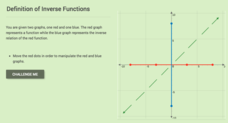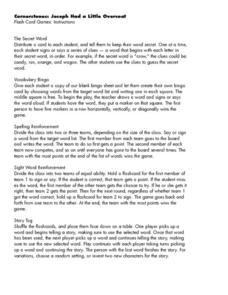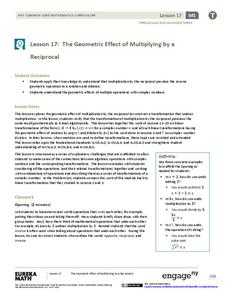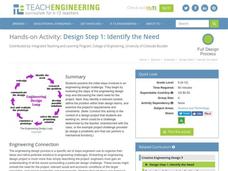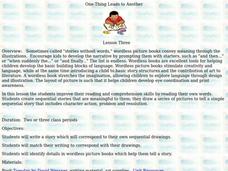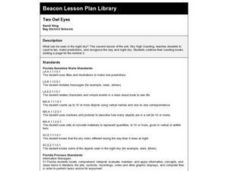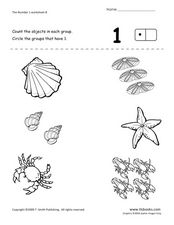Florida Center for Reading Research
Phonological Awareness: Phoneme Segmenting, The Sound Game
Pre-readers get a better understanding of phoneme segmenting and counting by playing a board game. They pick an image card from the stack, say the name of the object, break the word down into segments, then move their piece that number...
Innovative Mobile Apps
Action Words
From asking to yelling, this app teaches action verbs through images. Users listen to each word and tap the picture that corresponds with that verb. Just touch the screen to get started!
Road to Grammar
100 Ice-Breaker Questions
What if you could ease your English language learners into class with engaging questions? You can do just that with these questions. The questions, designed to prepare learners for working with English, are grouped by topics, such...
CK-12 Foundation
Definition of Inverse Functions
Investigate the definition of inverse functions graphically. Using the interactive, scholars create a graph of a function and view its resulting inverse. They then determine whether a group of functions have inverses that are also...
Curated OER
Phineas Gage: Questioning Strategy
Focus on chapter two of Phineas Gage: A Gruesome but True Story About Brain Science with a questioning activity. After teaching and modeling several types of questions, learners work with partners and then independently to answer and...
Illustrative Mathematics
US Garbage, Version 1
An interesting example of a discrete function and how it is applies to the real world. This could easily make a good collaborative lesson with an environmental science class. Practice reading a table and drawing a scatter plot make up...
PBS
Joseph Had a Little Overcoat: Flash Card Games
Expand the vocabulary of young readers with this series of five activities based the children's book Joseph Had a Little Overcoat by Simms Taback. From playing bingo to group storytelling, a variety of different approaches are...
Curated OER
Flicking Football Fun
Young mathematicians fold and flick their way to a deeper understanding of statistics with a fun, hands-on math unit. Over the course of four lessons, students use paper footballs to generate data as they learn how to create line...
Curated OER
Peter and the Starcatchers: QAR Strategy
Examine different types of questions while studying Peter and the Starcatchers. After learning about the different types of questions, pupils read passages from the text, answer the questions, and label each question with its...
EngageNY
The Geometric Effect of Multiplying by a Reciprocal
Class members perform complex operations on a plane in the 17th segment in the 32-part series. Learners first verify that multiplication by the reciprocal does the same geometrically as it does algebraically. The class then circles back...
National Endowment for the Humanities
The Creation of the Bill of Rights: “Retouching the Canvas”
While the Constitutional Convention lay the foundation of the new government for the United States, the protections given under the Bill of Rights were controversial. Using documents, such as James Madison's and Thomas Jefferson's...
Curated OER
Birds' Eggs
More than just data, scatter plots are full of information that can be used to answer a variety of questions. This lesson uses a plot with information about bird egg sizes to answer questions about the relationship between length and...
Lake Afton Public Observatory
Shadows, Angles, and the Seasons
Shine some light on the topic of seasonal change with this collection of activities. Whether it's by measuring the change in the length of their shadows, or modeling the earth's orbit around the sun using a lamp and a globe, these...
EngageNY
Exploiting the Connection to Cartesian Coordinates
Multiplication in polar form is nice and neat—that is not the case for coordinate representation. Multiplication by a complex number results in a dilation and a rotation in the plane. The formulas to show the dilation and rotation are...
Teach Engineering
Design Step 1: Identify the Need
What exactly does an engineer do? Learners find out through a lesson that asks them to solve a problem that affects a target population. Aspiring engineers learn the steps of the engineering design process as they apply it...
Teach Engineering
Exploring Energy: Kinetic and Potential
The potential of the energy in the class is moving. The third segment in a six-part unit on energy provides a deeper understanding of kinetic and potential energy. Learners understand the relationship between mass, speed, and energy and...
Curated OER
Match the Rhymes
Focus on the short u sound in this rhyme worksheet for emergent readers. Learners examine images surrounding a jug, drawing lines to connect it to those that rhyme (bug, rug, mug). Then, they practice their printing by tracing the...
Arcademics
Minus Mission
A learning game tests scholars' subtraction skills. While playing, participants use a canon to subtract the slime away by choosing the correct equations that correspond with the number shown.
Curated OER
One Thing Leads to Another
Students analyze the storytelling methods in wordless books. In this visual storytelling lesson, students write a story that correspond to a specific wordless picture book. Students create their own wordless picture book...
Curated OER
Two Owl Eyes
First graders listen to the story, Olivia Counts, and demonstrate counting to ten. They make predictions, and recognize the day and night sky. They add page number 2 to their counting books.
Curated OER
Counting Zero to Five
Students are introduced to the numerals zero through five. They associate the numeral with the correct number of objects. Students comprehend the quantities zero through five showing "How many?" by counting their fingers or using a...
T. Smith Publishing
The Number 1, 2, 3,, 4, 5 worksheets B
Five individual worksheets give preschoolers an opportunity to practice counting groups of animals up to the number five. Learners circle the group that has the correct number of animals as shown by a printed numeral and a domino with...
Curated OER
Make a Volcano Foldable
In this volcano worksheet, students make a "foldable" for the three types of volcanoes. They identify the volcano types, the type of lava, the type of eruption, the location of the volcano and the slope on one of three cards in the...
Curated OER
Human Sexuality Presentations
Students examine human health by researching the internet. In this human sexuality instructional activity, students utilize the web to locate a website which contains information about a certain sexual aspect. Students create a group...





